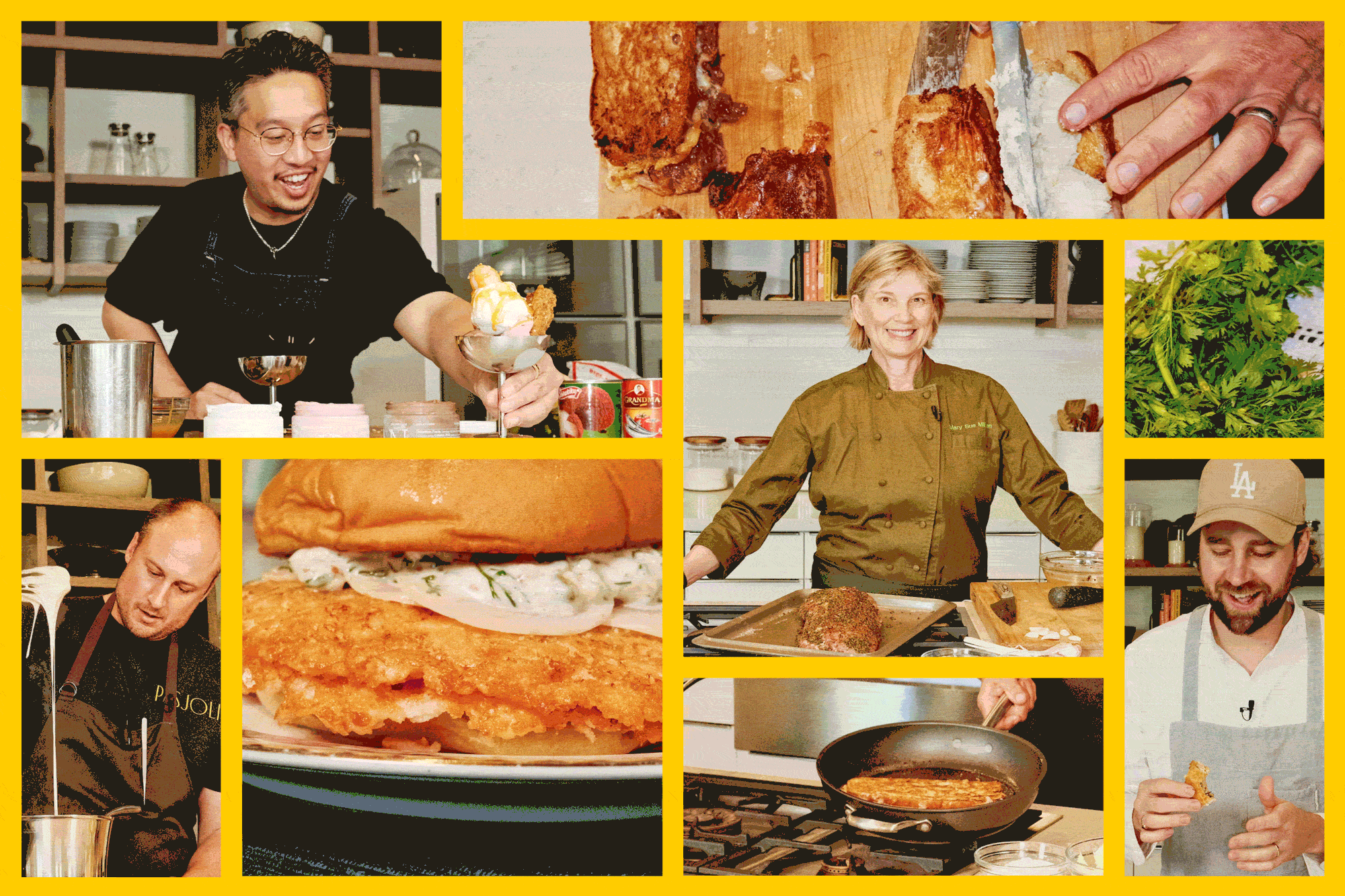California Cook: A sardine ‘fish-ticuffs’ bout with Michael Cimarusti of Providence
- Share via
I like almost everything about sardines. I like to cook them, I like to eat them. Heck, when I visit aquariums I even like to watch them swim around in circles. That’s the only explanation I can offer for how I found myself standing on a stage Sunday night engaged in a cook-off with one of America’s great chefs.
In the final night of this year’s the Taste, Michael Cimarusti from Providence and I were engaged in what we decided to call the Great Fish Fight, and the subject was sardines. He won, of course — I told him at one point it was like me playing H-O-R-S-E with Kobe Bryant — but I did get to cook some sardines, so the event wasn’t a total loss on my part.
The whole thing started innocently enough at last year’s Taste when food blogger Sara O’Donnell (Average Betty) tried to instigate an argument between Cimarusti and me about who had the better beard. No vote was taken, but I do think I won by a landslide as people tend to favor elegance over volume.
When she tried to kick up a similar fuss this time around, Cimarusti — perhaps chastened after last year — suggested that instead we should have a sardine cook-off. “Fish-ticuffs” I called it. And, of course, since the whole thing played out in real time on Twitter, there was no way I could back down.
My first challenge was finding sardines to cook. That proved harder than expected. Sardines are a notoriously fickle fish, their population prone to booms and busts. (Interestingly, some marine biologists — and many fishermen — have proposed that there is a sardine-anchovy cycle, with each fish taking dominance over the other for periods of time.)
In good times, sardines are one of the great bargains in the fish market — usually around $2 a pound. We’re in a down cycle for sardines, so I was stymied when I tried to sneak in a little practice beforehand. All my usual suspects, where sardines have been so plentiful in the past, turned up dry. I ended up using a sardine-like fish I found at Seafood City called something like “Roundhead Scad.” At least I got some practice cleaning — and it actually tasted good.
Cleaning is a big part of sardine cooking. Unlike most fish you buy in the market, sardines are always sold in the round and in their entirety. Cleaning them is not hard, but it is not like buying the usual fillet. Think of it as the difference between cutting up a whole chicken and buying a boneless, skinless breast.
I find sardines react really well to grilling and pair well with big flavors. When I cook them (and maybe I learned this from Cimarusti, years ago — I’ll give him credit anyway), I like to grill them on the skin-side only until the flesh turns color all the way through. This way the skin crisps up nicely, a real plus.
As far as accompaniments, with it being the height of the summer harvest, I decided to pair them with a salad of tomatoes, cucumbers and white beans, served with a nice drizzle of a quickly made pesto. It was like a panzanella, but with firm beans instead of tender bread.
Cimarusti opted for another of my favorite sardine dishes, the Sicilian classic pasta con le sarde — sardines mixed with spaghetti, wild fennel fronds and bread crumbs. And he knocked it out of the park.
The judges — KCRW “Good Food” host Evan Kleiman and our own Jonathan Gold — were kind, but it was clear that this was a perfect example of the difference between a good home cook’s dish and what a master chef like Cimarusti can do.
Still, all was not lost — I did get what I think of as my Little League “hardest-trier” award. Afterward Cimarusti gave me all the leftover sardines we hadn’t cooked.
So Monday night, I grilled them. Defeat has never tasted so sweet.
Are you a food geek? Follow me @russ_parsons1
More to Read
Eat your way across L.A.
Get our weekly Tasting Notes newsletter for reviews, news and more.
You may occasionally receive promotional content from the Los Angeles Times.











